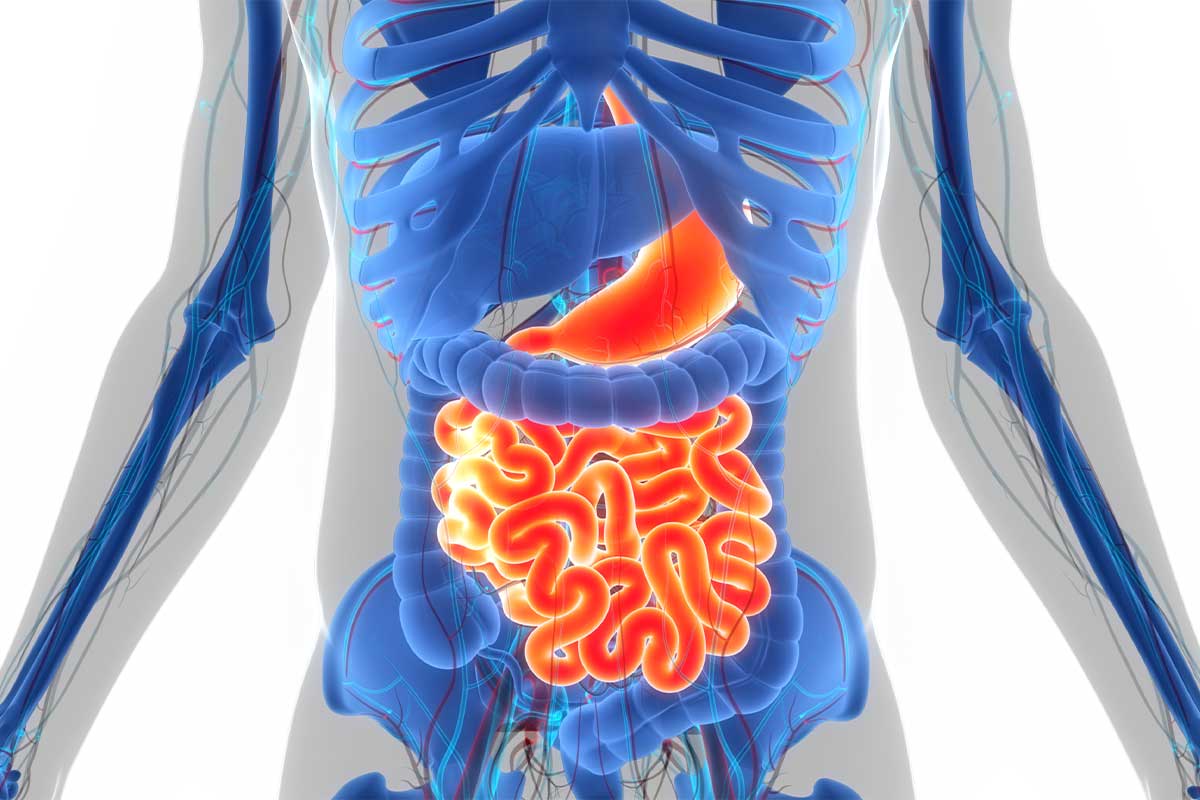
01
May
Irritable Bowel Syndrome (IBS) and its relationship with the intestinal microbiota.

Let’s assume that the colon is a stretchable tube that measures one and a half meters in length, and its end is the anus. Well, food should go in the same direction, that is, towards the anus, to be evacuated later. However, the intestine can become inflamed for various reasons, one of which is irritation in the mucosa, or the excessive presence of gas in the intestinal lumen, which generates a sensation of abdominal distension in the patient. This symptom usually appears more in the afternoons than in the mornings and is related to the fermentation of certain foods in the intestine, more specifically by the intestinal flora.
Therefore, irritable bowel syndrome is one of the most frequent causes of abdominal distension, also known as nervous colitis. This is a functional disorder of the intestine, which usually arises from an alteration in the neurotransmitters and nerve receptors of the intestine that amplify signals and produce motor disorders, producing a phenomenon called visceral hypersensitivity, where the patient feels much more distension or pain than they should normally feel.
Common Causes of Irritable Bowel Syndrome
One of the main causes of irritable bowel syndrome is diet. Some foods can be difficult to digest or cause inflammation in the intestine, which in turn can cause symptoms such as abdominal pain, bloating, and diarrhea or constipation. Foods that are often associated with IBS include dairy, gluten, high-fat foods, and processed foods. However, each person is different and may have different symptom triggers, so it is important to keep a food diary to identify foods that may be worsening symptoms.
In addition to diet, stress and anxiety can also be triggering factors for IBS. Stress can cause contractions in the intestinal muscles, which can cause pain and other symptoms. Furthermore, stress and anxiety can affect the balance of the intestinal microbiota, which in turn can worsen IBS symptoms. It is important to find ways to reduce stress and anxiety, such as meditation, yoga, or therapy, to improve IBS symptoms and prevent its recurrence.
What is the intestinal microbiota and what function does it have in our body?
The intestinal microbiota, also known as intestinal flora or microbiome, is a collection of microorganisms that live in the human gastrointestinal tract. This community of microorganisms is mainly made up of bacteria, but also includes viruses, fungi, and other types of microbes. The intestinal microbiota plays an essential role in maintaining the health of the gastrointestinal tract, as well as in balancing the body’s immune system. In addition, the intestinal microbiota is involved in food digestion, vitamin production, and the elimination of toxic substances from the body.
Each person has their own unique intestinal microbiota, which develops from birth and is influenced by factors such as diet, lifestyle, and exposure to microorganisms in the environment. The composition of the intestinal microbiota may vary between individuals, but in general, a healthy intestinal microbiota is considered to be composed of a wide variety of beneficial microorganisms, such as Bifidobacterium and Lactobacillus bacteria.
However, if there is an imbalance in the intestinal microbiota, also known as dysbiosis, there may be a decrease in the production of short-chain fatty acids, which can affect the health of the intestinal lining and lead to a range of health problems. Therefore, maintaining a healthy balance in the intestinal microbiota is important for overall health and well-being.
Why is it then related to the intestinal microbiota?
In addition to the factors mentioned above, there is growing evidence suggesting that the gut microbiota may play an important role in the development and symptoms of Irritable Bowel Syndrome (IBS). The gut microbiota is a collection of microorganisms living in the intestine that help digest food and maintain immune system balance. If there is an imbalance in the gut microbiota, there may be a decrease in the production of short-chain fatty acids, which can affect the health of the intestinal lining and lead to symptoms such as diarrhea or constipation. Furthermore, some studies have found that people with IBS have lower species diversity in their gut microbiota, which may be related to increased susceptibility to IBS symptom triggers.
Therefore, treatment of Irritable Bowel Syndrome may involve dietary and lifestyle changes, but may also include the use of probiotics and prebiotics to restore gut microbiota balance. Probiotics are live microorganisms that can be found in some foods and supplements and may help improve gut microbiota health. Prebiotics, on the other hand, are non-digestible fibers that feed good bacteria in the gut and may also help improve species diversity in the gut microbiota.
Some studies have found that the use of probiotics and prebiotics may improve IBS symptoms, although further research is needed to determine which types of microorganisms and fibers are most effective in treating this condition.
In conclusion, if you are experiencing gastrointestinal problems such as Irritable Bowel Syndrome, it is essential to seek medical attention for accurate diagnosis and effective treatment. Triborough GI, located in New York, has a team of highly trained specialists in the diagnosis and treatment of gastrointestinal diseases, including Irritable Bowel Syndrome. Do not hesitate to visit their facilities if you need medical attention for these types of problems. Your health is the most important thing and they are willing to help you.

